John Jay Scholars on the News — Re-enfranchising the Justice-Involved
In mid-April, New York Governor Andrew Cuomo signed an executive order re-enfranchising paroled persons with felony convictions. The move sidestepped the Republican-controlled state legislature and does not change state law; instead, the governor intends to issue pardons for individuals convicted of felonies and currently on parole in New York – up to 35,000 individuals – as well as pardoning any new felons entering the parole system each month. The order has been criticized on all sides, both for overstepping the bounds of gubernatorial power as well as for not going far enough to address criminal justice and electoral reform.
We asked some of our own faculty and staff what they thought of the move, and whether it might be a harbinger of further voting reform for the justice-involved, both in New York State and across the United States.

Gloria Browne-Marshall (Associate Professor, Constitutional Law): Only about seven nations disenfranchise formerly incarcerated citizens.
Alison Wilkey (Director of Public Policy, Prisoner Reentry Institute): The impacts of disenfranchisement on communities have intensified with mass incarceration. In 2016, the Sentencing Project estimated 6.1 million people were disenfranchised as the result of a felony conviction [in the United States].
Why is re-enfranchisement such a significant step? What do you believe the impact will be?
Dr. Baz Dreisinger (Professor, English): Denying those with justice involvement the right to vote is an unparalleled injustice. It’s about time that this be addressed.
Gloria: To withhold the right to vote due to a felony conviction is called a Civil Death. Re-enfranchisement is necessary for re-entry into society. To be placed outside of one’s community is the intended punishment. Once completed, the punished must be re-admitted into society as full members. This includes participation in the political process. All voting rights should be given once imprisonment has ended.
Alison: The right to vote is both a fundamental right and an important responsibility. Voting is the cornerstone of democracy and ensures that citizens are able to play a role in shaping our government. Re-enfranchising individuals on parole in New York State is a significant step towards ensuring a more participatory democracy and equitable society for all.
Governor Cuomo’s executive order will have significant impact on the re-entry process [i.e., individuals returning to society post-incarceration]. Successful re-entry often depends on opportunities for meaningful community engagement. Voting will ensure that individuals on parole have the opportunity to exercise their political voice and formally contribute to their communities.
Re-enfranchisement will also have a generational impact. According to the Urban Institute, 2.7 million children have an incarcerated parent, and more than 5 million children have had a parent in prison or jail at some point during their lifetimes. In many states, formerly incarcerated individuals are disenfranchised even post-sentence, after parole or probation. When parents or older family members are unable to participate in elections, children and younger generations lose their most direct model for civic engagement. Granting individuals on parole the right to vote will ensure that the children and family members of (formerly-) incarcerated individuals more often become involved in the political process.
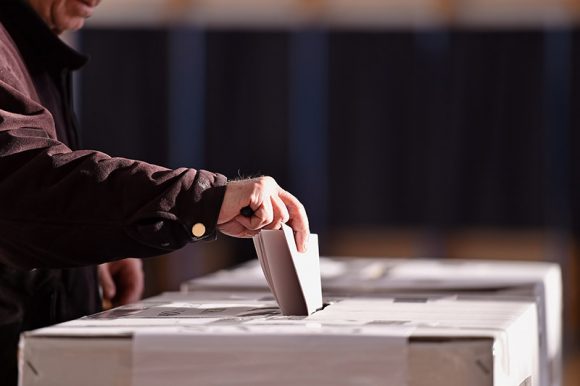
Dr. Heath Brown (Associate Professor, Public Policy): Voting is one of the most important ways to participate in the democracy, so restoring voting rights is a meaningful way to encourage full participation and a truly just society. The impact of restoring voting rights will depend on actual registration and turnout, however. Unfortunately we do not make it very easy to register, even for those who are fully eligible. Voting is also not always easy, especially for those working long hours. Lowering all barriers to full democratic participation would be the best guarantee that all voices are heard on Election Day.
Do you believe there should be any qualifications or exceptions to re-enfranchising the formerly-incarcerated population?
Alison: PRI firmly believes that all individuals, regardless of their involvement in the justice system, should have the right to vote. There should be no moral or character requirement for enfranchisement.
What do you believe is the likelihood or rate at which this population might exercise their right to vote, if re-enfranchised?
Gloria: The Supreme Court is deciding a current case based on whether citizens have a right not to vote. The formerly convicted have a right not to vote. It’s their decision how and when they choose to exercise this and any other Constitutional right.
Alison: Re-enfranchisement will only be as successful as the attendant voter education effort, which needs to be proactive and accessible. Government agencies, community-based organizations, community leaders and grassroots groups have an obligation to communicate with individuals on parole to ensure robust voter registration and subsequent voter turnout.
Heath: Voting is a habit, so those who voted prior to incarceration likely will return to regular voting quickly. I worry more about those who were incarcerated as teens, having never voted. It is for these citizens that a thorough program of civic learning would be most beneficial. I hope colleges, like ours, and civic groups can come together to develop programs to encourage voting and teach about democratic practices. We shouldn’t accept voting as a right that only those citizens who feel most informed and comfortable do. Re-entry programs should add democratic participation to their already Herculean efforts. Under President Mason’s leadership, I hope the John Jay community will lead this movement to promote full voting participation.
Do you think this move by Governor Cuomo has the potential to influence or spread to other states? If so, which ones?
Heath: Substantial political science research shows that innovative state policies spread and diffuse to other states. When it comes to voting issues, partisan conflict will surely factor into whether other states look to New York and this recent decision.
Gloria: Hopefully, New York will influence New Jersey and other states with long parole and probation periods that leave some formerly incarcerated persons in a “civilly dead” limbo for nearly a decade.
Baz: Since this is an archaic, discriminatory and utterly ridiculous law, it seems inevitable that it will collapse nationwide.
Alison: Gov. Cuomo’s executive order represents a wider trend in criminal justice reform that addresses the impact of disenfranchisement. Currently, only Maine and Vermont have granted incarcerated individuals the right to vote. New Jersey is considering similar legislation, and Virginia Governor McAuliffe signed an executive order similar to Gov. Cuomo [in April 2016]. Moreover, the People’s Policy Project report Full Human Beings notes that “several pieces of legislation are being advanced to enfranchise every citizen silenced through incarceration” at both the state and federal levels.
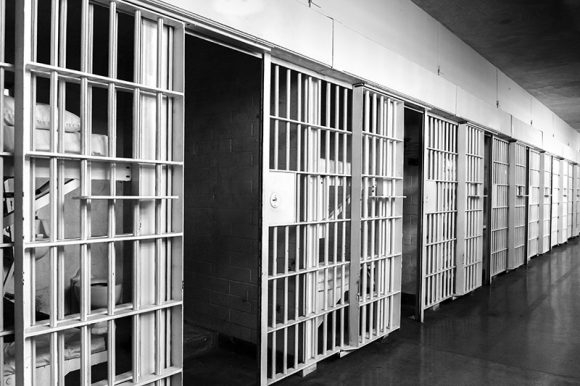
Are you for extending the vote to currently incarcerated individuals as well? If so, should they be registered to vote in their home districts or the districts in which they are incarcerated?
Alison: PRI believes in giving incarcerated individuals the right to vote in their home communities. Participating in the electoral process in their home communities will help incarcerated individuals maintain a connection with their communities, promote civic engagement, and ensure that the wider communities’ needs are addressed.
Disenfranchisement of incarcerated individuals disproportionately affects black and Latinx urban communities, who account for 60% of the prison population but only 27% of the total population. While incarcerated individuals do not have the right to vote in New York, the state draws on census data to draw electoral districts, which counts these individuals as residents of the prison location, not at their home address. The Prison Policy Initiative notes that the majority of New York State’s prisons are built in white, rural communities, which results in the transfer of a “predominantly of-color, non-voting population to upstate prisons, where it is counted as part of the population base for state legislative redistricting, [and] artificially enhances the representation afforded to predominantly white, rural legislative districts.” As the People’s Policy Project report Full Human Beings points out, as a result of prison gerrymandering, “the collective concerns of urban communities of color then go unaddressed.”
Re-enfranchising incarcerated individuals will therefore impact local and national policy on issues that have a direct impact on communities with high rates of incarceration.
Gloria: Voting qualifications are determined by the states pursuant to the US Constitution. Good conduct has been considered a qualification for voting since the colonial era. So it would be difficult for states to allow the incarcerated to vote based on the conduct qualification, political expediency and distribution of power. With over 2 million incarcerated, the prisoner vote would greatly impact the political landscape. If the incarcerated could vote, then should they be able to run for office?

Alison Wilkey is Director of Public Policy at John Jay College’s Prisoner Reentry Institute. Alison joined the Prisoner Reentry Institute as the Policy Director in December 2015. Prior to joining PRI, she worked at Youth Represent as the Director of Policy and Legal Services, and as a staff attorney in the Criminal Defense Practice of the Legal Aid Society in Manhattan. Ms. Wilkey served on the Broad of Directors of the New York County Lawyers’ Association, serving on the Justice Center Advisory Board and numerous other committees. She sat on the Criminal Courts Committee and the Corrections and Community Reentry Committee of the New York City Bar Association. Ms. Wilkey is a graduate of Columbia Law School.
 Dr. Baz Dreisinger is Professor of English at John Jay College. Dr. Dreisinger works at the intersection of race, crime, culture and justice. At John Jay she is the founding Academic Director of the college’s Prison-to-College Pipeline program, which offers college courses and re-entry planning to incarcerated men at Otisville Correctional Facility, and broadly works to increase access to higher education for incarcerated and formerly incarcerated individuals. Her most recent book, published in 2016, is Incarceration Nations: A Journey to Justice in Prisons Around the World.
Dr. Baz Dreisinger is Professor of English at John Jay College. Dr. Dreisinger works at the intersection of race, crime, culture and justice. At John Jay she is the founding Academic Director of the college’s Prison-to-College Pipeline program, which offers college courses and re-entry planning to incarcerated men at Otisville Correctional Facility, and broadly works to increase access to higher education for incarcerated and formerly incarcerated individuals. Her most recent book, published in 2016, is Incarceration Nations: A Journey to Justice in Prisons Around the World.
 Gloria Browne-Marshall is an Associate Professor of Constitutional Law at John Jay College. Professor Browne-Marshall teaches classes in Constitutional Law, Race and the Law, Evidence, and Gender and Justice. She is a civil rights attorney, playwright, and the author of many articles and several books, including The Voting Rights War: The NAACP and the Ongoing Struggle for Justice, and Race, Law, and American Society: 1607 to Present.
Gloria Browne-Marshall is an Associate Professor of Constitutional Law at John Jay College. Professor Browne-Marshall teaches classes in Constitutional Law, Race and the Law, Evidence, and Gender and Justice. She is a civil rights attorney, playwright, and the author of many articles and several books, including The Voting Rights War: The NAACP and the Ongoing Struggle for Justice, and Race, Law, and American Society: 1607 to Present.
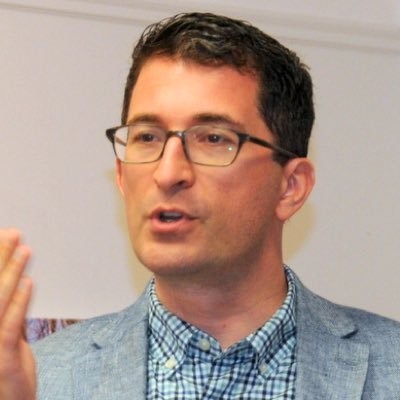 Dr. Heath Brown is an Associate Professor of Public Policy at John Jay College, City University of New York, and the CUNY Graduate Center. In addition to his teaching and research, Dr. Brown is Reviews Editor for “Interest Groups and Advocacy” and hosts a podcast called “New Books in Political Science,” where he interviews new authors of political science books. He is also an expert contributor to The Hill, The Atlantic magazine, and American Prospect magazine.
Dr. Heath Brown is an Associate Professor of Public Policy at John Jay College, City University of New York, and the CUNY Graduate Center. In addition to his teaching and research, Dr. Brown is Reviews Editor for “Interest Groups and Advocacy” and hosts a podcast called “New Books in Political Science,” where he interviews new authors of political science books. He is also an expert contributor to The Hill, The Atlantic magazine, and American Prospect magazine.
John Jay Scholars on the News – Deferred Action for Childhood Arrivals (DACA and Dreamers)
Hundreds of thousands of immigrants to the United States who arrived as children were protected by the Obama-era Deferred Action for Childhood Arrivals program, which allowed them to live, study and work in the country. Shortly after entering office, Donald Trump put a (currently defunct) deadline on phasing out the program and asked Congress to create a permanent solution which has not yet emerged, making these hundreds of thousands of immigrants into a political football and creating extreme anxiety about their futures. Despite professed political will on both sides of the aisle to keep DACA program beneficiaries (often conflated with Dreamers, or supporters of a Development, Relief, and Education for Alien Minors Act) in the country, the process of creating a legislative solution to protect these individuals has gotten bogged down amid new debate over levels of legal as well as illegal immigration, discussion of building a wall on the US’s southern border, and related issues. As a case makes its way through the courts, there are currently no signs of progress being made, whether on a short- or long-term solution for Dreamers, or for comprehensive immigration reform more broadly.
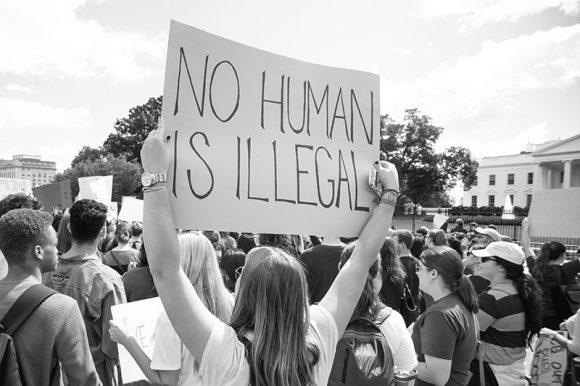
The fight over Dreamers is ongoing, thanks to a court order staying the Trump Administration’s directives to terminate the Deferred Action for Childhood Arrivals (DACA) program and continuing Congressional inaction toward creating a path to citizenship. What do you think is the ideal fix for Dreamers?
Jamie Longazel (Associate Professor, Political Science): Some may argue that blanket citizenship for Dreamers is not possible, but I’m a firm believer in working to expand the realm of possibility.
Isabel Martinez (Assistant Professor, Department of Latin American and Latina/o Studies): The ideal legislative fix for Dreamers is a pathway to citizenship that is not punitive and takes into account the many years that they have lived in the United States. This means eliminating the conditional permanent resident provisions that have been included in several versions of the “Dream Act” that in some cases mandate thirteen total years before the ability to apply for citizenship; lowering application fees; and widening the ability to regularize status. Better legislation would raise the limit on the age of arrival (now sixteen) and remove the maximum age (currently thirty). It would also include a way for Dreamers’ parents to regularize their statuses, either via sponsorship by Dreamers or other citizen children, or on their own. It is wholly punitive to grant children of immigrants a pathway to citizenship and not their parents.
Dan Stageman (Director of Research Operations, Office for the Advancement of Research): Dreamers are a particularly sympathetic class of immigrants because they fit into the American narrative of meritocratic achievement, and because they were too young to be seen as culpable for the “crime” of their unauthorized presence in the US. In a moral sense, however, they are no more deserving of citizenship than low-wage immigrant workers who underpin significant sectors of the American economy, who pay taxes, and contribute to their communities of residence in countless ways. Perhaps more importantly, Dreamers are connected to this supposedly less deserving segment of the undocumented population through family ties and social bonds. So no legislative fix that focuses narrowly on Dreamers is intrinsically good for them – it is simply seen as more politically possible than a genuinely inclusive and comprehensive approach to legislation.
Part of the problem with making a push toward legislative change is that issues tend to fall out of the news cycle or be supplanted by newer and bigger issues. How can activists keep DACA at the forefront of legislators’ minds and continue to push for change?
Isabel: Immigration activists have been fighting for a Dream Act for sixteen years, but what is hopeful is that we are currently seeing the highest percentages of voters supporting a way for Dreamers to remain in the country legally. Activists and allies must be media and politically savvy and ensure that this support continues and grows, and is continuously broadcast to legislators. This means that DACA activists and allies must be media and politically savvy. Media and legislators must also do the right thing to build further support to get a law passed.
Jamie: I think activists deserve a lot of credit for keeping this conversation going, despite the media’s tendency to get bored and move on. My sense is that, within activist circles and immigrant communities, this issue hasn’t gone away at all, even if the national media has stopped covering it and we have temporarily lost legislators’ attention.
One helpful tactic for activists to consider as they try to build the power necessary to enact meaningful change is issue linking. DACA is about immigration, but it’s also about economic injustice, race, and unequal access to certain rights and privileges. By bringing DACA recipients and other undocumented folks into the conversation on, say, universal healthcare (and vice versa), not only does the issue stay on the agenda, but it also helps to boost cross-issue solidarity where we’d otherwise have activists working in silos.
Dan: What is striking is when you see groups like United We Dream – an undocumented youth grassroots organization – shifting their focus to providing practical support for immigrants facing deportation. It’s an indication that the faith these groups place in the political process to solve their very real and immediate human problems is at a low ebb.

Can you state the case for allowing Dreamers to stay in the United States?
Isabel: Dreamers are already Americans! They have assimilated – the only thing that separates them from other young people is a piece of paper. Removing Dreamers would be removing Americans, as well as much-needed talent and potential in which this country has already invested. Additionally, sending Dreamers back to countries and communities that they do not know and where they do not possess social ties is setting them up for failure. These countries have limited plans to receive and integrate them.
Jamie: I don’t think Dreamers are especially deserving because they are high achieving or assimilated. Claims like these can reinforce notions of “us” versus “them” that have long plagued the immigration debate. I think they are deserving because they are human beings, because no one deserves to live in fear, because no one deserves to be denied access to basic rights. I think Dreamers should be permitted to stay in the United States because it is the right thing to do.
Isabel: The other case is rooted in the United States’ obligations as an imperialist state: the majority of DACA recipients are Mexican, approximately 79%. Their arrivals to the United States coincided with the shocks or aftershocks of economic deals, including NAFTA, made between the US and Mexico that had losers as well as winners, namely many poor Mexican families who could no longer survive due to conditions of the deals. If we look at other countries of origin including the Dominican Republic, Guatemala, and El Salvador, we see immigration as the effect of failed or highly lopsided bi-national policies enacted with the United States. This is considered alongside increased border militarization that made the conditions of circular migration deadly and expensive for adult migrants like these young peoples’ parents. The United States has had its hand in the conditions that pushed many families from these communities to enact strategies that let them survive together; as such, the United States has a moral obligation to right these wrongs by receiving and integrating Dreamers and other immigrants.
Dan: I would again broaden the lens to include all “unauthorized permanent residents,” a group that includes any individual who has built the kinds of social and economic ties to the US that are the essential features of establishing long-term community membership, but is unable to legalize their presence. That definition in and of itself makes the case: the ethical framework for community membership goes back at least to Rousseau’s Social Contract, and the mutual obligation it establishes between the individual and their society. Dreamers and other unauthorized permanent residents are fulfilling their end of the social contract through their economic and cultural contributions to American life; unfortunately, the federal government has not reciprocated. Congress passed the last comprehensive immigration law in 1996 – over 20 years ago. The heartbreaking stories that have recently become so common, of individuals deported after 20, 30 or 40 years of US residency, are the direct result of Congress’s historic refusal to address the instability and vulnerability these immigrants have faced throughout their time in the country.
The reality is that vulnerable people are easy to exploit – illegality is, in effect, an informal guest worker program that allows the US economy to benefit from Dreamers and other unauthorized permanent residents without providing for their welfare. This is also why local governments and private prison companies have been able to take increasingly entrepreneurial approaches to their involvement in immigrant detention and deportation. The simple case for a path to citizenship is that these forms of exploitation are morally repugnant and un-American.
What is the best thing others can do to support the Dreamers?
Jamie: If we are talking about folks who are not immigrants, or immigrants who do not have a precarious legal status, then my suggestion would be to stay active – attend rallies, share information, or join an organization. And I think folks should think hard about how our struggles are intertwined. Solidarity is how otherwise powerless groups become powerful. But it is important that Dreamers and other affected immigrants lead the way, because sometimes well-intended actions and words from unaffected people can do more harm than good.
Dan: Give generously to advocacy organizations like the New York Immigration Coalition or the Immigrant Legal Resource Center. Write and call senators and congresspeople in support of DACA legislation. Most importantly, learn about the needs and vulnerabilities of immigrant communities where you live and work, and intervene in whatever way you can.
CUNY has one of the largest populations of Dreamers of any university system in the country, and while it would be irresponsible for any institution to tell these students that we can keep them safe from deportation, we can find other ways to help alleviate the incredible stress they’ve been under since the 2016 election; for example, establishing scholarships and emergency support funds, holding regular legal clinics, providing physical and mental health services, and ensuring the confidentiality of their education data are some of the things that CUNY has taken on to support our Dreamers.
Isabel: Individuals can follow our lead at John Jay for local-level support. For college-going Dreamers, we will be opening an Immigration Student Success Center in the fall that will centralize resources – academic, financial, social and legal – that are essential to their success. This is the culmination of two and a half years of work that focused on creating systems to protect, support, and empower our John Jay Dreamers.
In addition, according to a variety of polls the majority of Americans support a pathway to citizenship for Dreamers. Voters need to turn that passive support into active support and pressure their representatives to vote on a bill ASAP, with calls, emails, visits, op-eds and town hall testimonials that share how important it is that this issue is resolved. This pressure should be placed at all levels of government and in the private sector. Private citizens and corporations can advocate for state and local government to support Dreamers by passing bills that provide in-state tuition, state financial aid, and drivers’ licenses; allow them to obtain professional licenses to practice medicine and law, or teach; and restrict cooperation with DHS and ICE.
Some states and institutions are instituting limited solutions for DACA recipients, like a bill proposed in Rhode Island to allow DACA recipients to obtain drivers licenses and work permits despite expired federal status, or certain universities helping with DACA renewal fees or offering special opportunities for non-citizenship-dependent research and educational opportunities. How helpful do you think these solutions are in mitigating the current circumstances Dreamers find themselves in?
Isabel: These are very helpful, but aren’t enough. In-state tuition and financial aid can mean the difference between DACA recipients enrolling or not in college, and, once enrolled, stopping frequently to save money or paying by semester. And of course, there are significant wage differentials between those with and without college degrees or professional development opportunities. Providing funding for internships and research enables DACA recipients to position themselves to procure better (status and –paying) jobs during school and after graduation.
Dan: While state and local-level solutions are not a replacement for comprehensive federal immigration reform including a path to citizenship, they are absolutely necessary in its absence. Most important among these solutions are the ones that, like California’s recent SB-54, limit law enforcement data sharing and cooperation with Immigration and Customs Enforcement (ICE). It’s important for states and localities to announce their intentions to protect their communities from arbitrary detention and deportation, and follow through with legally binding statutes that prevent local law enforcement agencies from contributing to the process in any way.
Jamie: What I appreciate most about measures like this is their symbolic power. These places are leading by example. They’re showing us what inclusion could look like, showing us that they are not afraid, and expanding our collective sense of what is possible.
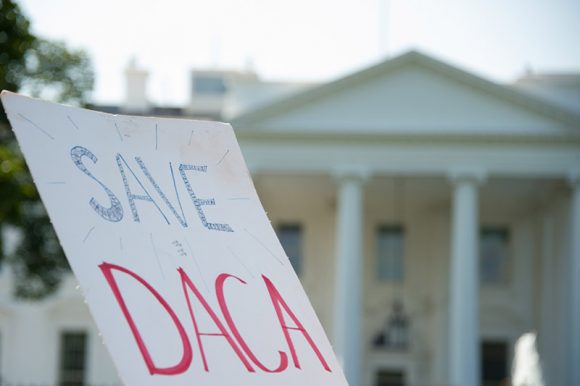
Does the focus on DACA recipients in the news and policy debate overlook other undocumented immigrants, or ease their own paths toward citizenship? Do you believe this debate will end up helping all undocumented residents?
Dan: I think overall the focus on DACA recipients does a disservice to other undocumented immigrants. It sets up a contrast between the supposedly achievement-oriented, ‘model immigrant’ Dreamers, and their hard-working (but often low-wage) parents and neighbors who are no less deserving. This is a false dichotomy, and not one that anyone who supports immigrant rights should be playing into.
Jamie: I think the focus on DACA recipients has overlooked other undocumented immigrants, but only because of the way the issue has been framed (i.e., depicting DACA recipients as deserving in contrast to other undocumented folks). There are plenty of other ways we can frame the issue that are actually favorable to immigrants across the spectrum of legal statuses.
For instance, I think talking about children who were brought to the United States without authorization can complicate what is otherwise a rather simplistic immigration debate. People talk about “legal” and “illegal” immigration as though there is a binary that is synonymous with “good” and “bad.” But here we see that the reality is far more complicated. DACA also opens up an opportunity to talk about nuances that many non-immigrants are unaware of: mixed-status families and the unique experiences of “1.5 generation” immigrants, to name a couple of examples.
What I’m saying is that so much of our public debate has relied on stereotypes and myths! With DACA, I think we have an opportunity to confront and challenge those myths, but we have to be very careful not to reinforce them.
(Answers may be lightly edited for clarity.)
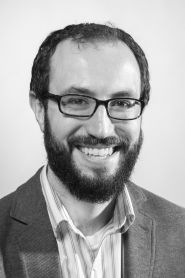 Dr. Jamie Longazel is an Associate Professor in the Department of Political Science at John Jay College. His research examines issues of race and political economy, typically within the contexts of immigration and imprisonment. His recent book, Undocumented Fears: Immigration and the Politics of Divide and Conquer in Hazleton, Pennsylvania, uses the debate around Hazleton’s controversial Illegal Immigration Relief Act (IIRA) as a case study that reveals the mechanics of contemporary divide and conquer politics and makes an important connection between immigration politics and the perpetuation of racial and economic inequality.
Dr. Jamie Longazel is an Associate Professor in the Department of Political Science at John Jay College. His research examines issues of race and political economy, typically within the contexts of immigration and imprisonment. His recent book, Undocumented Fears: Immigration and the Politics of Divide and Conquer in Hazleton, Pennsylvania, uses the debate around Hazleton’s controversial Illegal Immigration Relief Act (IIRA) as a case study that reveals the mechanics of contemporary divide and conquer politics and makes an important connection between immigration politics and the perpetuation of racial and economic inequality.
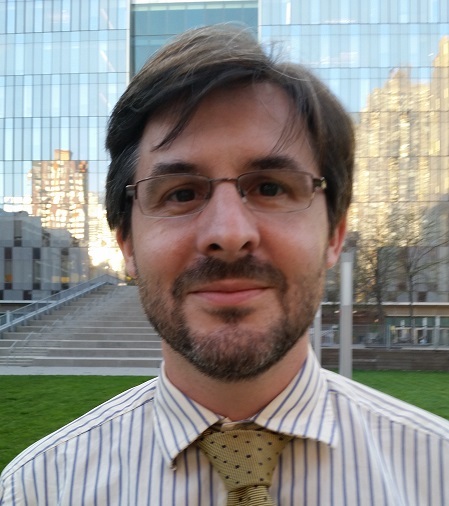 Dr. Daniel Stageman is the Director of Research Operations of John Jay’s Office for the Advancement of Research. His academic work examines political economy and profit in the detention of American immigrants, and the economic context surrounding federal-local immigration enforcement partnerships.
Dr. Daniel Stageman is the Director of Research Operations of John Jay’s Office for the Advancement of Research. His academic work examines political economy and profit in the detention of American immigrants, and the economic context surrounding federal-local immigration enforcement partnerships.
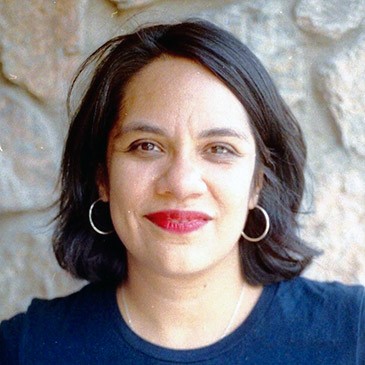 Dr. Isabel Martinez is an Assistant Professor of Latin American and Latina/o Studies and the Founding Director of U-LAMP, the Unaccompanied Latin American Minor Project, a research and service project that focuses on providing academic, social and legal support to recently arrived immigration minors in removal proceedings. She also serves as the faculty adviser to the JJay DREAMers club.
Dr. Isabel Martinez is an Assistant Professor of Latin American and Latina/o Studies and the Founding Director of U-LAMP, the Unaccompanied Latin American Minor Project, a research and service project that focuses on providing academic, social and legal support to recently arrived immigration minors in removal proceedings. She also serves as the faculty adviser to the JJay DREAMers club.



Recent Comments